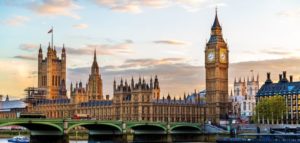
The government’s plans for devolution deals outlined in the levelling up white paper are not sufficient to fix the overcentralised and “opaque” governance system, a new report has found.
The report by the Public Administration and Constitutional Affairs Committee (PACAC) argues that the government wields too much power in England, which has left people unable to benefit from policies adapted to local areas.
It also outlined that the current governance system, including local government and metro mayors, is “patchwork” and “opaque”. This has left citizens confused about which democratic representative or institution is accountable for decisions that affect their lives and has caused “geographical inequality” in England.
William Wragg, PACAC’s chair, said: “The levers of power have been stripped away from local levels of government throughout the twentieth century, leaving people in England with a less locally-focused and democratically-accountable system of governance.”
However, the group of MPs detailed that the government’s current plans for devolution outlined in the levelling up white paper are not sufficient to address the governance issues identified in the report.
“Successive governments have tinkered on the edges of these questions and problems, and unfortunately we feel the levelling up white paper is destined to continue that pattern,” the report said.
Overcentralisation of power
The PACAC highlighted that the white paper recognises the problematic overcentralisation of power and decision-making in Whitehall, but it does not make clear how the proposed changes will address the problem.
According to the report: “The government’s proposal to continue with the ‘deal-making’ model, despite containing a clearer framework for powers that can be decentralised, ultimately leaves the significant decision-making power in Whitehall, not town halls.”
In addition, the committee called for the government to end the system of competitive funding pots and provide a long-term funding model for councils.
Wragg added: “We urgently need an overhaul of governance arrangements to empower local decision-making and restore public faith in accountable local governance.
“It is important that such long-term, fundamental reforms are not controlled by any one party.
“That is why we are calling on the government and the opposition to set up a cross-party commission to develop proposals for sustainable and durable governance arrangements for England.”
Successive governments have tinkered on the edges of these questions and problems, and unfortunately we feel the levelling up white paper is destined to continue that pattern.
DLUHC’s response
In response to the report, a spokesperson for the Department for Levelling Up, Housing and Communities said: “We are already putting power into the hands of those who know their communities best as we bring forward the largest devolution of power from Whitehall to local leaders across England in modern times.
“Strong local leadership that understands an area and seizes the opportunities open to it is critical to levelling up.
“Mayors are already playing a key role as ambassadors for their areas and locally-led government reforms can create strong and accountable local institutions.”
We urgently need an overhaul of governance arrangements to empower local decision-making and restore public faith in accountable local governance.
—————
FREE weekly newsletters
Subscribe to Room151 Newsletters
Room151 LinkedIn Community
Join here
Monthly Online Treasury Briefing
Sign up here with a .gov.uk email address
Room151 Webinars
Visit the Room151 channel












